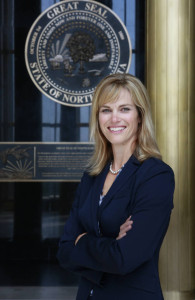Border battle: ND refuses to pay millions in MN renewable energy bills

By Tom Steward | Watchdog Minnesota Bureau
Call it this: No (renewable) electrification without representation.
A revolutionary settlement between the state of North Dakota and Xcel Energy’s Northern States Power unit will save ratepayers nearly $6 million a year by exempting charges for higher-priced renewable energy from Minnesota.
“It is no secret that Minnesota rules, laws and policies are highly influenced by various environmental groups and ideas,” Mike Diller, director of economic regulation for the N.D. Public Service Commission said during a hearing in January. “… The environmental concerns of North Dakota are different than those of Minnesota, and the cost of compliance with the environmental and energy policies in Minnesota is becoming a burden to North Dakota ratepayers.”
North Dakota sets a voluntary goal of generating 10 percent of its power from renewable sources, ranking third on the American Wind Energy Association list of states in percentage of wind power. Across the border, Minnesota requires 31.5 percent of Xcel Energy’s power be generated by wind and other subsidized — often less competitive — renewable energy sources by 2020.
“This has not been the approach in North Dakota,” said Julie Fedorchak, a PSC commissioner. “Policy makers in our state believe it should be driven not by state mandates and government mandates, but more by the private sector and technological growth.”
ND COMMISSIONER: North Dakota ratepayers have been paying for MN’s aggressive renewable energy mandates for too long. ND PSC photo.
For years, Xcel has spread the cost of Minnesota’s renewable energy requirement to the utility’s customers in five neighboring states.
North Dakota officials grudgingly looked the other way as Minnesota regulators continued to approve more of what they viewed as inefficient renewable energy projects. Those projects increased the utility bills of Xcel’s 80,000 customers — from Fargo to Minot — by an estimated $5.7 million a year. The systemwide cost for ratepayers is about $92 million.
“These policies come with a cost, and the costs under the system of Xcel Energy are shared across the border systemwide in states like North Dakota and South Dakota,” said Fedorchak. “So over the years, we’ve effectively been paying for some of the policies being mandated by the state of Minnesota.”
The long-standing friction and frustration over the states’ opposing energy policies finally broke into the open during the hearings in Bismarck after Xcel Energy’s requested rate increase for North Dakota ratepayers. PSC regulators saw it as an opening to assert control over North Dakota’s energy independence and destiny. The final agreement includes a precedent-setting provision for Xcel to “re-stack” the mix of electric power allocated in North Dakota and reset rates based on least-cost conventional energy sources that match the state’s priorities.
“We are not aware of this same proposal being developed elsewhere,” said Dave Sederquist, a senior regulatory and financial consultant with Xcel Energy. “Method of allocating shared resources between jurisdictions can and do vary between states.”
It will take months to analyze the economics of about two dozen mostly smaller Minnesota community wind projects and biomass facilities, which North Dakota considers unnecessarily costly for its ratepayers to support. If agreement cannot be reached by July 2015, North Dakota ratepayers would not be billed for the questionable Minnesota projects.
“This part of the settlement is a big risk to NSP as it will require Minnesota to begin paying for its own prescribed generation programs that North Dakota finds unacceptable,” said Diller in his hearing testimony. “If Minnesota refuses to pay for all of its programs, NSP will be stuck with stranded investment and not chance of full recovery.”
While reverse engineering renewable energy regulatory rates between states appears to be unprecedented, other states may be energized by the development.
“The costs of complying with resource mandates in any given state have traditionally been recovered in all of the states we serve,” said Sederquist of Xcel. “While we are not aware that regulators in other states in the NSP System are pursuing mechanisms to address any energy policy differences, we understand there may be some interest by those states to look at this issue as well.”
What about North Dakotans paying for their neighbor’s latest renewable energy mandate — solar?
“Solar’s coming in and I can tell you right now that our position in North Dakota will be we’re not interested in that 150 megawatts of solar power they’re building over there,” said Diller.
Contact Tom Steward at tsteward@watchdog.org.







